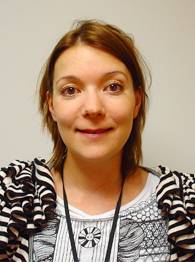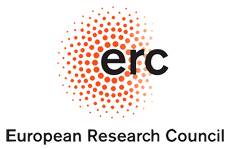The overarching goal of the Bjedov Laboratory is to improve our understanding of the ageing process, and to explore anti-ageing interventions as therapeutic strategies to prevent or delay cancer.
Group Leader: Dr Ivana Bjedov, Senior Research Fellow
Vacancy: Postdoc
A new position has become available to join the Molecular Biology of Cancer Research Group.
Apply by: 05 June 2024
Research
Ageing is a complex process and presents a major challenge to modern societies. Recently, many interventions have been discovered that extend lifespan and healthspan in model organisms such as yeast, worms, flies and mice. Current interest in ageing research stems from evidence that anti-ageing treatments are evolutionary conserved, and have the potential to delay or prevent age-related diseases.
In order to understand better the ageing process, our work focuses on DNA repair, as well as on the mTOR pathway and its downstream effectors, such as protein synthesis and autophagy. To discover fundamental evolutionary conserved anti-ageing mechanisms, we use a variety of models such as yeast, Drosophila, mice, human cells, and mouse and patient organoids. We combine different approaches, such as functional genomic screens, whole genome sequencing, DNA methylation analysis, phosphoproteomics, confocal and confocal spinning disc microscopy, as well as molecular and cell biology approaches, which altogether enable us to capture a more complete overview of the ageing process.
Our research addresses the following complementary questions:
Can we prevent DNA damage and enhance DNA repair to reduce genome mutations and selectively improve normal tissue radiation resilience?
Maintaining genome integrity is key for longevity and reduced cancer risk, therefore interventions that lower mutations are expected to improve ageing and delay cancer. Despite mutations being essential for evolution, they are mostly detrimental, and repair of DNA damage must therefore occur effectively to prevent both mutations and excessive cell death, which would otherwise lead to increased cancer risk or accelerated ageing, respectively. Understanding how enhanced DNA repair capacity can confer protection against DNA damage infliction will be critical to simultaneously reduce cancer risk and promote healthy longevity. Understanding how enhanced DNA repair capacity can confer protection against DNA damage infliction will be critical to simultaneously reduce cancer risk and promote healthy longevity.
What is the role of translation errors in ageing?
In contrast to the well-established effects of DNA mutations on ageing and disease in multi-cellular organisms, the role of translation errors is understudied and poorly understood. This is despite mistranslation being the most erroneous step in gene expression.
Proteostasis disruption is a critical factor underlying ageing and age-related diseases, with translation being one of its key determinants. Therefore, improved understanding of the biological impact of translation errors in the context of organismal ageing is urgently needed. To reduce errors in translation, we mutated RPS23, a key protein in the ribosomal decoding centre, and identified a lysine residue, which is almost universally conserved across all domains of life, but is replaced by an arginine in a small number of hyperthermophilic archaea. When introduced into eukaryotic RPS23 homologues, this specific substitution leads to accurate translation, as well as heat shock resistance and longer life, in yeast, worms, and flies. This study (PMID: 34525330) demonstrated for the first time in metazoan species that increased protein synthesis fidelity is a novel anti-ageing intervention.

Can we use a cell population-based epigenetic clock to discover novel anti-ageing drugs?
We have a strong interest in pharmacological anti-ageing interventions, and provided initial demonstrations that rapamycin, now a gold standard in the ageing field, extends lifespan (PMID: 20074526 and PMID: 31570569). The recent development of DNA methylation-based clocks was a key breakthrough in the ageing and epigenetic fields, enabling accurate measurement of human age. Despite certain unknowns about the underpinnings of DNA methylation clocks, they are expected to help understand human ageing and why we all age differently. We generated the CellPopAge Clock, specifically designed to monitor changes in the age of in vitro cell populations at the epigenetic level. Using human adult primary fibroblasts, we show that the CellPopAge Clock can detect decelerated ageing of cell populations following pharmacological interventions. We believe that the CellPopAge Clock has future utility as a new screening platform for the identification of novel compounds, which delay ageing of cell populations and extend in vivo lifespan.
Publications
Martinez-Miguel V E, Lujan C, Espie-Caullet T, Martinez-Martinez D, Moore S, Backes C, Gonzalez S, Galimov E, Brown A E X, Halic M, Tomita K, Rallis C, von der Haar T, Cabreiro F, Bjedov I; Increased fidelity of protein synthesis extends lifespan. Cell Metabolism 2021 Sep 8: S1550-4131(21)00417-4. doi: 10.1016/j.cmet.2021.08.017
With highlights in:
Nature Review Molecular Cell Biology
The Journal of Cardiovascular Aging
- Aman Y, Schmauck-Medina T, Hansen M, Morimoto RI, Simon A K, Bjedov I, Palikaras K, Simonsen A, Johansen T, Tavernarakis N, Rubinsztein D C, Partridge L, Kroemer G, Labbadia J, and Fang E F; Autophagy in healthy ageing and disease. Nature Ageing 2021; 1;634-650. doi.org/10.1038/s43587-021-00098-4
- Stead E and Bjedov I; Balancing DNA repair to prevent ageing and cancer. Exp Cell Res 2021 Jun 5;112679. doi: 10.1016/j.yexcr.2021.112679
- Lubin A, Otterstrom J, Hoade Y, Bjedov I, Stead E, Whelan M, Gestri G, Paran Y, Payne E A; Versatile automated high-throughput drug screening platform for zebrafish embryos.V Biol OPen 2021 Jul 9;bio.058513. doi:10.1242/bio.058513
- Bjedov I, Cocheme H, Foley A, Wieser D, Castillo Quan JI, Norvaisas P, Lujan C, Regan J, Toivonen J, Kinghorn K, Murphy M, Thornton J, Neufeld T, Cabreiro F, Partridge L; Fine-tuning autophagy maximises lifespan and is associated with changes in mitochondrial gene expression in Drosophila. Plos Genetics 2020 Nov 30;16(11):e1009083. doi: 10.1371/journal.pgen.1009083.
- Lujan C, Tyler E J, Webster A P, Stead E R, Martinez-Miguel EV E, Ecker S, Milligan D, Garbe J C, Stampfer M R, Beck S, Lowe R, Bishop C L, Bjedov I; A CellAge epigenetic clock for expedited discovery of anti-ageing compounds in vitro BioRxiv 2020 doi.org/10.1101/803676
- Bjedov I, Rallis C; The Target of Rapamycin signalling pathway in aging and lifespan regulation Genes 2020 Sep 3;11(9):1043. doi: 10.3390/genes11091043
- Pryor R, Norvaisas P, Quintaneiro L, Lujan C, de Haes W, Smith R, Leung K-Y, Scott T, Woodward O, Bryson K, Greene N D E, Houtkooper R, Temmerman L, Bjedov I, Cocheme H, Kaleta C and Cabreiro F; Host-Microbe-Drug-Nutrient Screen Identifies Bacterial Effectors of Metformin Therapy Cell 2019 Sep 5;178(6):1299-1312.e29. doi: 10.1016/j.cell.2019.08.003.
- Castillo-Quan JI, Kinghorn KJ, Li L, Tillman A, Gronke S, Hinze Y, Blackwell TK, Bjedov I, Partridge L: A triple drug combination therapy targeting different components of the nutrient-sensing network maximises healthspan and longevity PNAS 2019 Oct 15;116(42):20817-20819. doi: 10.1073/pnas.1913212116.
- Stead E, Martinez Miguel V, Lujan C, Bjedov I; Agephagy – adapting autophagy menu for health during ageing Front. Cell and Dev. Biol. 2019 Nov 28;7:308. doi: 10.3389/fcell.2019.00308.
- Sofola-Adesakin, O, Bjedov I, Kerr F; Molecular mechanisms of lithium action: switching the light on multiple targets for dementia using animal models. Front Mol Neurosci. 2018 Aug 28;11:297. doi: 10.3389/fnmol.2018.00297. eCollection 2018.
- Kulaberoglu Y, Lin K, Holder M, Gai Z, Gomez M, Assefa Shifa B, Mavis M, Hoa L, Sharif AAD, Lujan C, Smith ESJ, Bjedov I, Tapon N, Wu G, Hergovich A. Stable MOB1 interaction with Hippo/MST is not essential for development and tissue growth control. Nat Commun. 2017 Sep 25;8(1):695. doi: 10.1038/s41467-017-00795-y.
- Kinghorn KJ, Grönke S, Castillo-Quan JI, Woodling NS, Li L, Sirka E, Gegg M, Mills K, Hardy J, Bjedov I, and Partridge L. A Drosophila Model of Neuronopathic Gaucher Disease Demonstrates Lysosomal-Autophagic Defects and Altered mTOR Signalling and Is Functionally Rescued by Rapamycin. J Neurosci 2016 Nov 16;36(46):11654-70
- Castillo-Quan JI, Li L, Kinghorn KJ, Ivanov DK, Tain LS, Slack C, Kerr F, Nespital T, Thornton J, Hardy J, Bjedov I, Partridge L. Lithium Promotes Longevity through GSK3/NRF2-Dependent Hormesis. Cell Rep. 2016 Apr 19;15(3):638-50.
- Klionsky DJ […] Bjedov I. […]. Guidelines for the use and interpretation of assays for monitoring autophagy (3rd edition). Autophagy 2016 Jan 2;12(1):1-222.
- Castillo-Quan JI, Kinghorn KJ, Bjedov I. Pharmacology of Longevity: when genetics meets therapeutics for healthy aging. Adv Genet. 2015;90:1-101.
- Sofola-Adesakin O, Castillo-Quan JI, Rallis C, Tain LS, Bjedov I, Rogers I, Li L, Martinez P, Khericha M, Cabecinha M, Bähler J, Partridge L. Lithium suppresses Aβ pathology by inhibiting translation in an adult Drosophila model of Alzheimer’s disease. Front Aging Neurosci. 2014 Jul 30;6:190.
- Bjedov I, Partridge L (2011) A longer and healthier life with TOR down-regulation: genetics and drugs. Biochem. Soc. Trans. 2011 Apr 1;39(2):460-5
- Partridge L, Alic N, Bjedov I, Piper MD (2010) Ageing in Drosophila: The role of the insulin/Igf and TOR signalling network. Exp Gerontol. 2010 Sep 16.
- Bjedov I, Toivonen JM, Kerr F, Slack C, Jacobson J, Foley A, Partridge L. (2010) Mechanisms of life span extension by rapamycin in the fruit fly Drosophila melanogaster. Cell Metabolism 2010 Jan;11(1):35-46.
- Toivonen JM, Walker G, Martinez P, Bjedov I, Driege Y, Gems D, Partridge L No influence of Indy on lifespan in Drosophila after correction for genetic and cytoplasmic background effects Plos Genetics 2007 3(6):e95.
- Bjedov I, Dasgupta CN, Slade D, Le Blastier S, Selva M, Matic I. Involvement of Escherichia coli DNA polimerase IV in tolerance of cytotoxic alkylating DNA lesions in vivo Genetics 2007 176(3):1431-40
- Bjedov I, Tenaillon O, Gerard B, Souza V, Denamur E, Radman M, Taddei F, Matic I. Stress-induced mutagenesis in bacteria. Science 2003 May 30;300(5624):1404-9.
- Bjedov I, Lecointre G, Tenaillon O, Vaury C, Radman M, Taddei F, Denamur E, Matic I. Polymorphism of genes encoding SOS polymerases in natural populations of Escherichia coli. DNA Repair 2003 Apr 2;2(4):417-26.
 Close
Close




